Who was James Allen?

James Allen was born in 1864 to working class parents in England. His father died when he was just 15, so he went to work to help support the family, but he continued to read books enthusiastically. Some of Allen’s major influences include Ralph Waldo Emerson, John Milton and Leo Tolstoy. He was also inspired by religious writings such as the Bible and teachings from the Buddha and Lao Tzu.
In 1902 he founded a magazine called The Light of Reason where he began publishing his inspirational writing. His most popular book was this one, As a Man Thinketh, and its success allowed him to start writing full time.
James Allen is considered one of the early founders of the self-help movement. Many of his ideas still echo today in what modern self help teachers call The Law of Attraction. But in a preface to one of his books, his wife Lily said that he never wrote about theories, but “facts, which he had proven by practice.”
1. Our thoughts are seeds that create our world
A man cannot directly choose his circumstances, but he can choose his thoughts, and so indirectly, yet surely, shape his circumstances.
Many people believe their inner thoughts are secret and powerless. James Allen holds the opposite view—he says our thoughts shape us in more powerful ways than we expect. Our ways of thinking are a subtle force that slowly bends the course of our lives in a certain direction.
In fact, he says that thoughts are the primary cause in our lives, rather than our circumstances. This means the more we encourage thoughts of strength, courage and perseverance, the more our actions will be bold and the greater our chance for success.
Allen uses the analogy of our mind being like a garden. We have to plant the right seeds in this garden and nurture them, and at the same time pull out the bad weeds. In this analogy, the right seeds are thoughts that make us vital, energized and strong, while the weeds are disempowering thoughts. Over time, our minds can become like beautiful, orderly garden that satisfaction and success. But if we neglect to take care of the garden, then our lives become a chaotic, overgrown, miserable mess.
Allen wouldn’t be the first person to make this analogy. Thousands of years before, Jesus talked about the Kingdom of Heaven being like a mustard seed. He said it’s like the smallest seed, but when planted and nurtured, it grows into the greatest tree.
But I suspect Allen may have been strongly inspired by Buddhist teachings. In the book The Heart of the Buddha’s Teaching, the famous monk Thich Nhat Hanh explains that all humans have a storehouse consciousness. And from this deep storehouse, both good and bad seeds arise into our regular consciousness.
And Buddha said it’s our job to nurture the positive seeds (like compassion, joy and peace) to let them grow. At the same time, we must let the negative seeds (like anger, jealousy and greed) fall back down to that storehouse consciousness. So in this way, the Buddha had a similar teaching that thoughts lead to actions. You can learn more about the fundamentals of Buddhism by reading our summary of The Heart of the Buddha’s Teaching by Thich Nhat Hanh.
Thoughts are not secret and powerless. They shape our lives very deeply. Thoughts are like seeds in the garden of our mind. We must nurture the helpful thoughts and weed out the destructive ones.
2. Our circumstances are shaped by our character
Men are anxious to improve their circumstances, but are unwilling to improve themselves; they therefore remain bound.
Today society (especially politicians) encourages us to view ourselves as helpless victims. Maybe this view can give one psychological relief, but in the end it is a fruitless activity—to see oneself as a victim can only lead to hatred and depression.
What is the alternative to a self-perception of helplessness or victimhood? The best example I can think of is Viktor Frankl, a psychologist sent to the German concentration camps of World War 2. His whole family had murdered and he was surrounded by the worst suffering imaginable, yet Frankl chose never to see himself as a victim of circumstances.
He wrote, “Everything can be taken from a man but one thing: the last of the human freedoms—to choose one’s attitude in any given set of circumstances, to choose one’s way.” In those camps, Viktor Frankl discovered that finding meaning was the only thing that helped prisoners survive the suffering rather than giving up. Read more of his story in our summary of Man’s Search For Meaning by Viktor Frankl.
Of course we may live within an environment that is oppressive, but we always have the freedom of how to respond. And the only worthwhile response is to focus on the areas of our lives that we do have some power to change. This begins with our thoughts, then our daily actions and habits.
Modern society encourages us to be helpless victims of circumstances, but Viktor Frankl’s experiences in WW2 concentration camps reveal the truth that we always have freedom to choose our response in any situation. This starts by focusing on what we can control—our thoughts and daily habits.
3. Our desires direct the world we create around us
You will always gravitate toward that which you, secretly, most love.
In the Bible, the book of Matthew says, “For every one that asketh receiveth; and he that seeketh findeth; and to him that knocketh it shall be opened.” That’s is a great summary of how our desires shape the direction that we point our attention, and then our focus of attention shapes our actions and then our lives.
Desire leads to attention, attention leads to action, actions lead to our circumstances.
In another popular self help book called Rich Dad Poor Dad, the author Robert Kiyosaki was raised by both a poor dad (his biological father) and a rich dad (his friend’s father). His rich dad showed Robert that being able to spot opportunity is a skill that you can train yourself to do.
As a kid Robert went to work in his Rich Dad’s store for no money! Rich Dad wasn’t just ripping him off, there was a great reason behind the arrangement. Because Robert wasn’t getting paid, he became very motivated to find creative new ways to make money. Within a few weeks, Robert and his friend Mike saw that old comic books were just being thrown out by the store, so they asked if they could keep them. Then they opened a small comic library for kids in their home, which made them a LOT more money than a few dollars per hour.
Later Rich Dad told Robert most people are too busy getting paid a wage, so they never strengthen the part of their brain that can spot business opportunities. Yet opportunities are all around us. You can read more in our summary of Rich Dad Poor Dad by Robert Kiyosaki.
Many of the most successful people had to learn this type of flexible mindset. Steve Jobs, the cofounder of Apple, said that “Everything around you that you call ‘life’ was made up by people who were no smarter than you. And you can change it, you can influence it, you can build your own things that other people can use.” That demonstrates why Jobs was such a powerful cultural figure—he thought in a different way to most people, seeing the world as a fluid combination that he could rearrange in creative new ways.
Our thoughts and desires direct our attention. And the direction of our attention shape the world we create around us. Just like Robert Kiyosaki and Steve Jobs learned that opportunities are all around us, when one learns how to see them.
4. We must earn things, not just wish for them
Not what he wishes and prays for does a man get, but what he justly earns. His wishes and prayers are only gratified and answered when they harmonize with his thoughts and actions.
Modern self help gurus often twist this idea that our thoughts influence our life… into the irrational belief that we will get anything we wish for.
- They say if you believe you will get rich quick, then you will!
- If you dream of a shiny red Ferrari, then it will magically appear in your driveway!
- (And if it didn’t happen, then you just didn’t believe hard enough!)
But the classic success authors like James Allen were very clear that our thoughts are just the starting point. Yes, we must begin by having the right thoughts and desires, but those alone are not enough. Rather, the right thoughts get us to do the right actions so we can “justly earn” what we desire. (And obviously desires are not just for material possessions, but also include a great family life, community of friends, charitable contributions, etc.)
Another massively popular classic success book is called Think and Grow Rich. That book is also often wrongly summarized as “all you have to do is think and you’ll get rich.” Yet the author of that book is also very clear that wishes alone do not make anyone rich.
In that book, Napoleon Hill wrote, “Wishing will not bring riches. But desiring riches with a state of mind that becomes an obsession, then planning definite ways and means to acquire riches, and backing those plans with persistence which does not recognize failure, will bring riches.” If you want to hear more of these kinds of success insights, then look at our summary of Think and Grow Rich by Napoleon Hill.
Today’s get-rich-quick gurus say we can have whatever we want through good “intentions” alone. This is obviously irrational. The right thoughts are just the starting point, and they must be followed through with the right effort.
5. Our thoughts even affect our physical health
Anxiety quickly demoralizes the whole body, and lays it open to the, entrance of disease.
Considering this book was written in 1902, that is a surprisingly accurate health advice.
Today neuroscientists can actually measure the effects of anxiety or stress in our bodies. When we get stressed, chemicals called glucocorticoids are released in our bodies. Modern people are often chronically stressed, because our problems are things we cannot run away from like mortgages and bills. This means the stress chemicals stay in our bodies for a long time, and this is very damaging.
Long-term exposure to stress chemicals increases your risk of high blood pressure and diabetes and it saps your immune system, making you more vulnerable to sickness and infection. So James Allen was totally right about anxiety “demoralizing” the body and making us more vulnerable to disease. (If you want to learn more useful facts like this related to neuroscience, then look at our summary of the book Behave by Robert Sapolsky, a Stanford biology professor.)
However some parts of As a Man Thinketh probably take this insight too far, implying that ALL sickness is caused by inner thoughts. I think most people would disagree with that. Because for example sometimes babies and kids get diagnosed with terrible diseases that are no fault of their own.
Finally, there is one last way Allen says our thoughts can promote or destroy our health. If we allow too many thoughts related to pleasure-seeking, indulgence and idleness, then we slowly bend our lives into the direction of bad health, no matter what our outer stated goals may be.
Change of diet will not help a man who will not change his thoughts. When a man makes his thoughts pure, he no longer desires impure food.
Make of that what you will. 🙂
James Allen said anxiety makes our bodies more susceptible to disease. Surprisingly, modern doctors would agree with this. When people are chronically stressed, the stress chemicals can be very destructive in the body, weakening the immune system.
Conclusion
This book really hammers home one main idea over and over again: that our thoughts create our circumstances. That may be why As a Man Thinketh continues to be read today over 100 years later. It is clear, direct, and inspiring to many. Go ahead and take this empowering attitude forwards with you in your life.




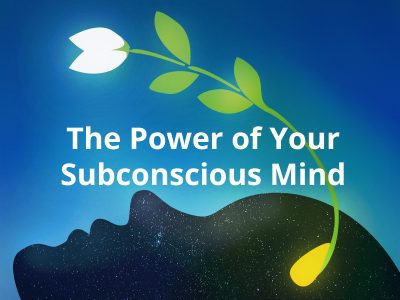
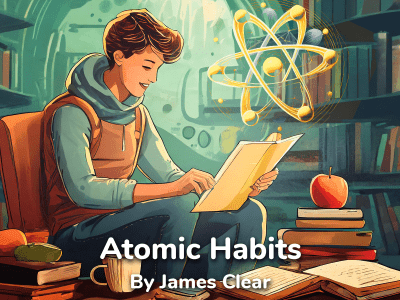
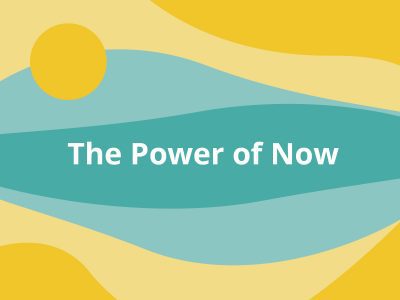






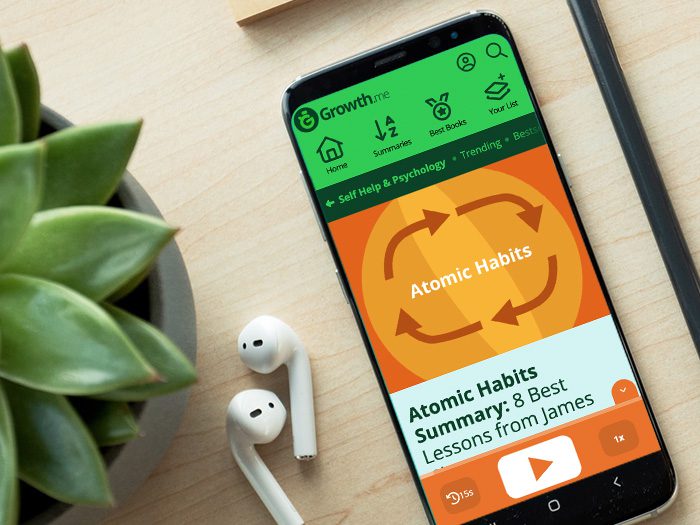
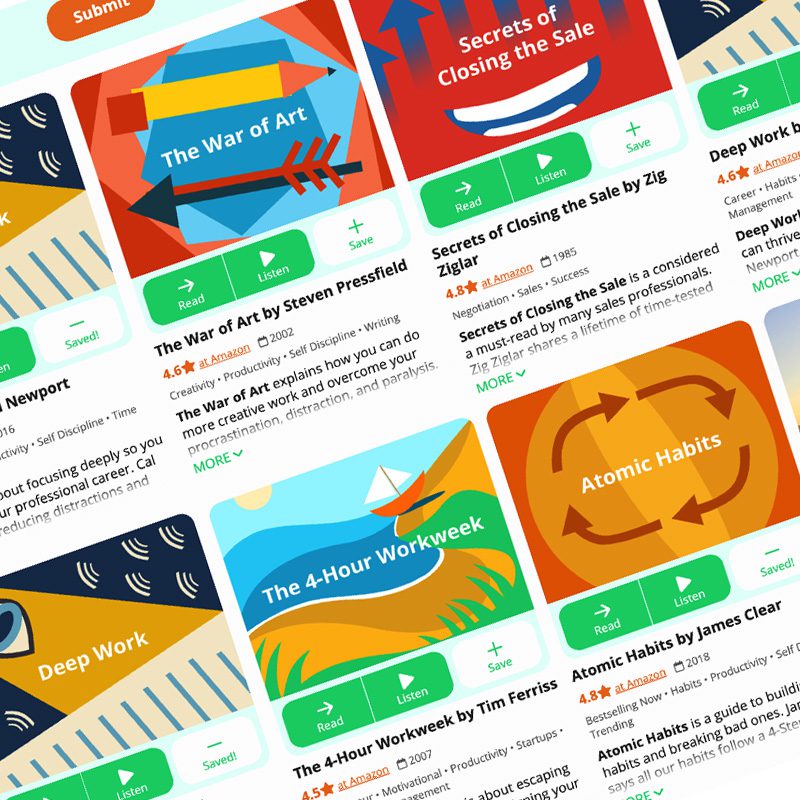
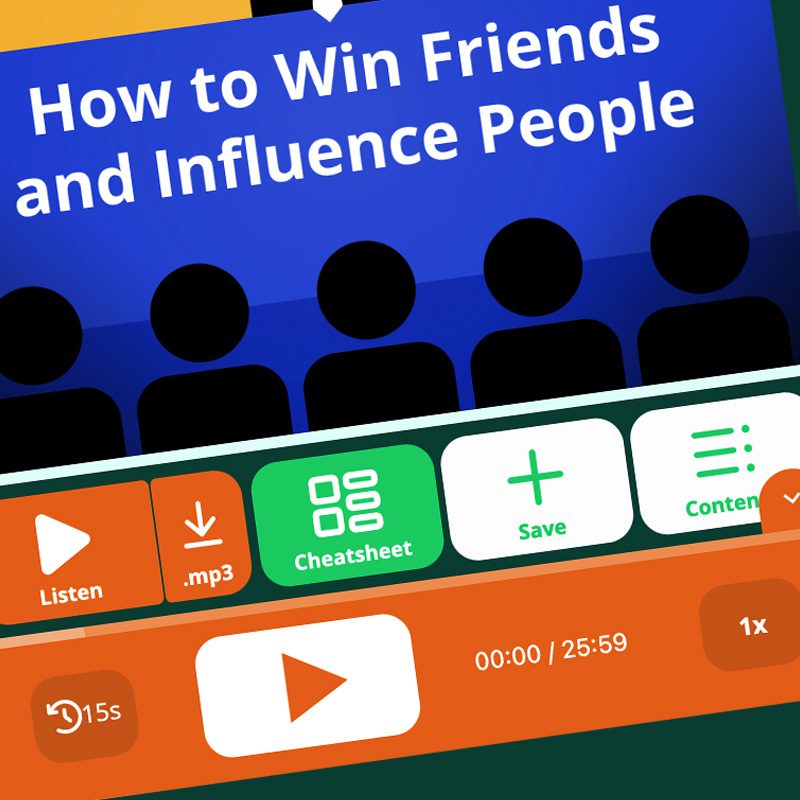
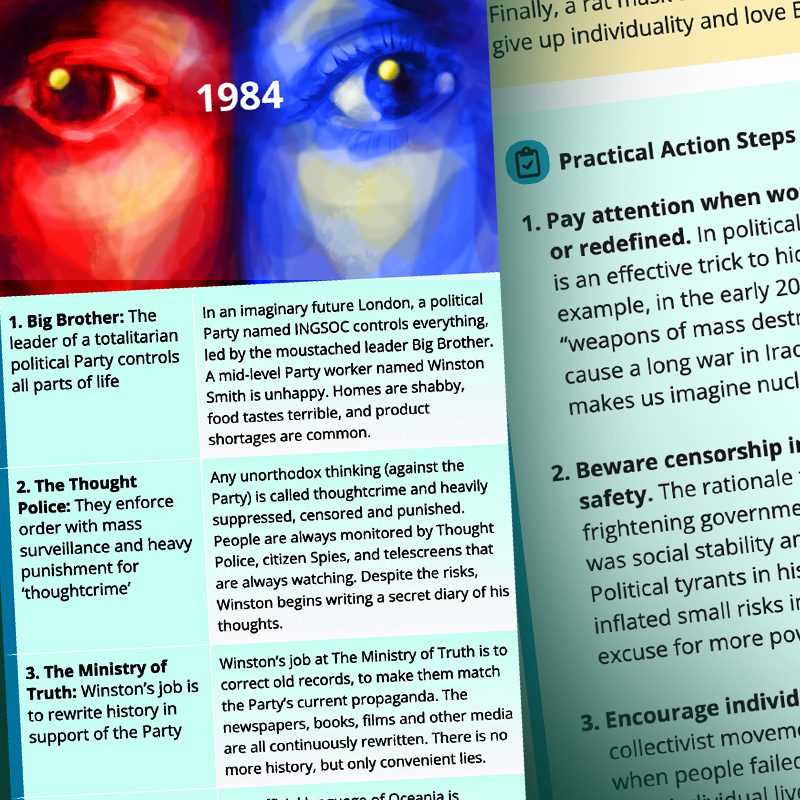


Community Notes